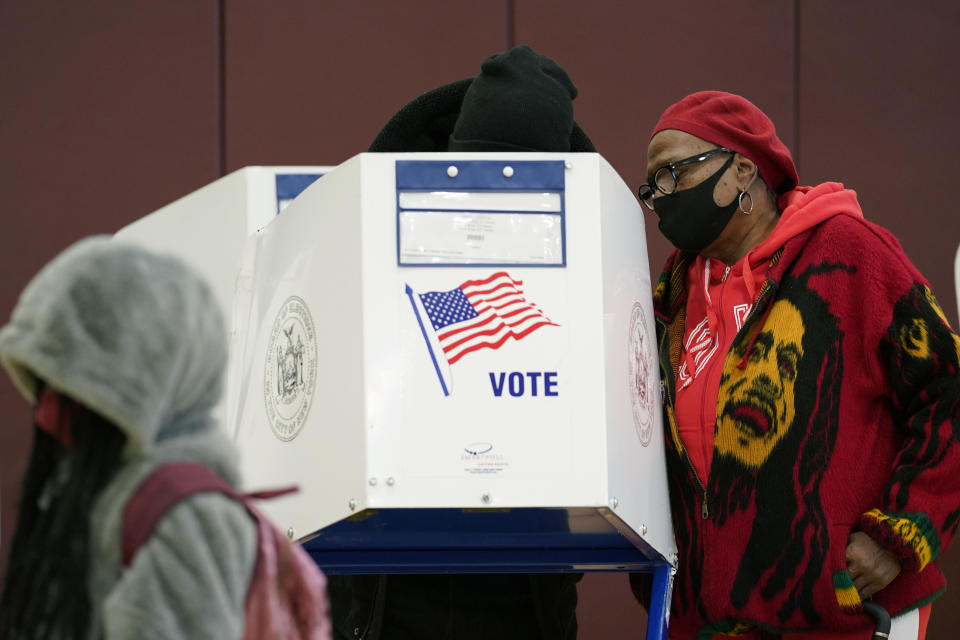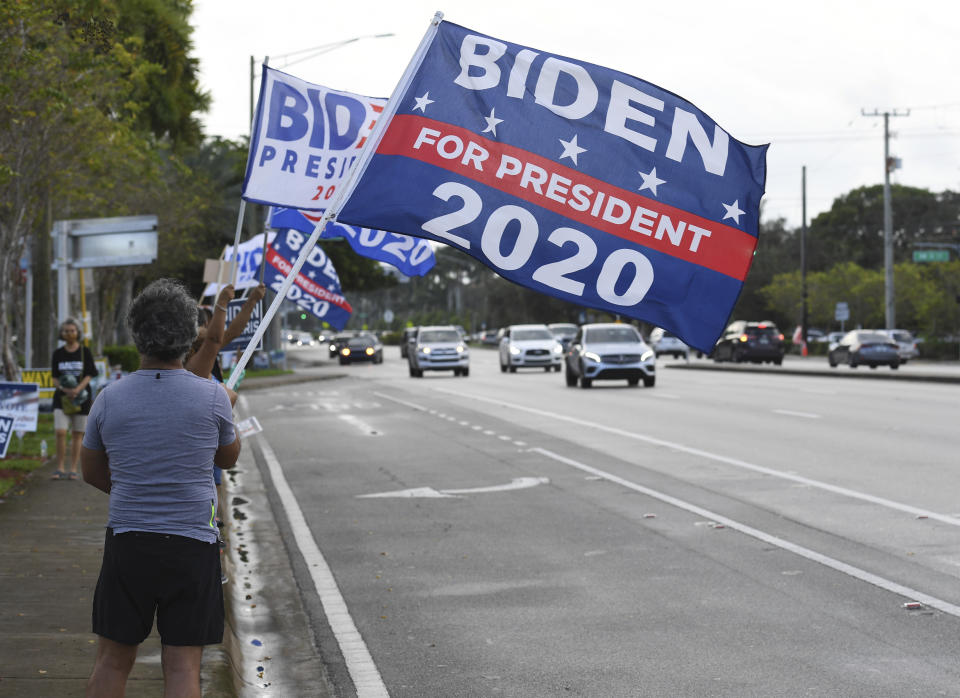Election 2020: The economy fades as a top voter concern
It’s long been axiomatic that the economy is always the most important issue in elections, with candidates who lose sight of this basic rule likely to lose. But maybe not in 2020.
Polling from Gallup shows that voters rank the economy surprisingly low when they declare their top concern. In a mid-October survey, just 14% of respondents ranked economic issues, such as jobs or growth, as their No. 1. top concern. That was up from 9% from a month earlier, but it was far lower than in the run-up to prior elections. Economic concerns were the top issue for 16% of voters in 2016, 31% of voters in 2012 and 39% in 2008, according to similar Gallup surveys.
The economy obviously matters more during bad times than good, which suggests it should be top of mind at the moment. Employers have shed 11 million jobs since February and the unemployment rate is an elevated 7.9%. Coronavirus restrictions have devastated sectors such as hospitality, travel and retail. Confidence is far below pre-virus levels. And a surge in coronavirus cases could lead to more shutdowns and a reversal in improving job trends.

Voters’ other concerns
The Gallup numbers don’t mean voters are unconcerned about the economy. Instead, voters seem even more concerned with other problems. In the October survey, 30% say coronavirus is the top issue, while 23% say poor government leadership is. Another 10% cite race relations as their top concern. The economy is a perennial concern, which is why many campaigns have followed the Bill Clinton mantra from 1992: “It’s the economy, stupid.” But the economy rises or falls as a priority based on what else is going on. Terrorism, for instance, was the top voter concern following the 2001 terrorist attacks, and the Iraq war was the top voter concern for four years after the U.S. invaded in 2003.
Americans obviously vote based on a variety of factors rather than their single biggest concern when asked to rank the issues most important to them. So it’s hard to interpolate what the rank order of voter concerns means for the 2020 election.
If anything, it would seem to be a negative for President Trump, since the economy is his best issue with voters. A series of final election polls show Trump leading his Democratic challenger Joe Biden on the economy in swing states such as Arizona, Florida and Pennsylvania. If the economy were the main issue, that would be good news for Trump, since he’d been winning on the topic voters care most about.
Mishandling of the coronavirus pandemic
But Trump gets low marks for his handling of the coronavirus pandemic, failing voters on the issue that matters most to them right now. It also can’t be good for Trump that poor government leadership is the No. 2 concern, because more than anybody else, he’s the face of government. Race relations can break both ways, since some Americans are worried about minority rights while others care more about the risk of protests getting out of control.

Trump has been an underdog since coronavirus exploded earlier this year, and that’s the case in the home stretch of the election. The University of Virginia’s Center for Politics thinks Biden will beat Trump convincingly, 321 electoral votes to 217. Forecasting site FiveThirtyEight gives Biden a 90% chance of winning and Trump only a 10% chance. Many other polls show Biden with a wide enough lead in enough swing states to prevail.
Everybody knows most such forecasts were wrong in 2016, but a repeat in 2020 is unlikely. Pollsters changed their methodology after the 2016 embarrassment to better represent the lesser-educated voters likely to turn out for Trump. Third-party candidates are less prominent this time around and less likely to divert votes away from the Democrat. Voters like Biden better than Hillary Clinton, the 2016 candidate, making them less likely to vote for Trump as a protest. And while late developments broke in Trump’s favor in 2016, the autumn surge in coronavirus cases and Trump’s own infection are coming at an awful time for him, politically. It’s the coronavirus, stupid.
Rick Newman is the author of four books, including “Rebounders: How Winners Pivot from Setback to Success.” Follow him on Twitter: @rickjnewman. Confidential tip line: rickjnewman@yahoo.com. Encrypted communication available. Click here to get Rick’s stories by email.
Read more:
Get the latest financial and business news from Yahoo Finance
Follow Yahoo Finance on Twitter, Facebook, Instagram, Flipboard, SmartNews, LinkedIn, YouTube, and reddit.

 Yahoo Finance
Yahoo Finance 

